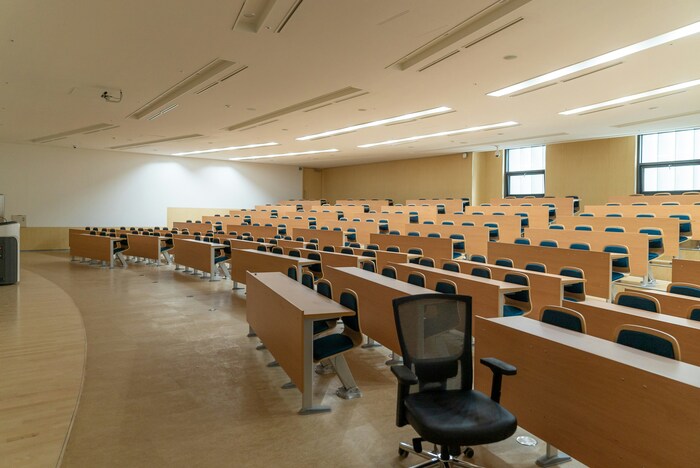Introduction
Transitioning from a PhD or EdD student to an academic professional represents a significant milestone in any scholar’s career. This evolution extends beyond earning a doctoral degree, ushering scholars into an opportunity where they acquire and impart knowledge. This shift from student to professor carries with it not just a title change but a profound responsibility to contribute to the academic community, inspire future generations, and advance the frontiers of knowledge in one’s field. For recent doctoral graduates, navigating this transition can be daunting and fraught with challenges and opportunities. This blog post aims to shed light on this critical phase in an academic’s career, offering insights, advice, and strategies to assist new academics in effectively leaping PhD or EdD students to respected professors, ensuring a smooth and successful transition into the academic profession.
Understanding the Shift
The transition from a PhD student to a professor involves a fundamental transformation in identity and role within the academic environment. This shift necessitates moving from a primarily receptive position, where the main focus is on absorbing knowledge, to a more active role of creating and disseminating information. New professors must learn to juggle various tasks, including lecturing, mentoring students, conducting and overseeing research, and contributing to administrative duties. This change requires a deep understanding of one’s field of study and an ability to communicate complex ideas effectively and foster a stimulating learning environment for students.
Taking on new responsibilities is a significant part of becoming a professor. Beyond teaching and research, new academics are expected to contribute to the academic community by serving on committees, participating in faculty governance, and engaging in peer review processes for academic journals and conferences. Such duties extend the influence of professors beyond the classroom and laboratory, allowing them to take control of their institution’s educational and scholarly direction. Developing a balance between these responsibilities and one’s research interests can be challenging but crucial for a fulfilling academic career.
Furthermore, the shift from PhD student to professor requires a substantial change in mindset. New professors must advance from being apprentices in their fields to becoming experts who are confident in their knowledge and skills. This transition involves staying current with their discipline’s latest research and trends and cultivating a personal teaching philosophy and research agenda. Adopting a mindset that embraces continuous learning, adaptability, and resilience is paramount, as the academic landscape is always evolving. New professors should be prepared to continuously reflect on their teaching and research methodologies, seeking ways to innovate and improve.

Preparing for Your First Course
Preparing for your first course from PhD to professor requires thoughtful planning and curriculum development. This process begins with defining the learning objectives that align with your department’s and discipline’s goals. Effective curriculum development involves carefully considering the content scope, sequencing of topics, and integrating theoretical and practical elements to foster a comprehensive understanding among students. It’s also important to design assessments and assignments that accurately measure student learning and encourage critical thinking. By creating a dynamic and inclusive curriculum, you can cater to diverse learning styles and backgrounds, making the subject matter accessible and engaging for all students.
Learning management systems (LMS) are crucial in course delivery and management in today’s academic landscape. Familiarizing yourself with the LMS adopted by your institution is essential for a smooth transition to professorship. These platforms are the backbone of course management, allowing professors to distribute course materials, communicate with students, collect assignments, and provide feedback efficiently. Utilizing the features of an LMS can enhance student engagement and participation, offering various tools for discussion boards, quizzes, and collaborative projects. Additionally, an LMS provides valuable data on student performance, enabling professors to identify learning gaps and tailor their teaching strategies accordingly.
Classroom management is another pivotal aspect of preparing for your first course. Establishing a positive learning environment requires setting clear expectations, fostering respect and inclusivity, and managing classroom dynamics effectively. Developing strategies for encouraging active participation, addressing disruptive behavior, and supporting students with different needs and learning styles is important as it can contribute to a positive and supportive learning environment. Effective classroom management also involves being adaptable and responsive to student feedback, allowing you to adjust your teaching methods and create a more conducive learning atmosphere. By mastering these skills, you can ensure a productive and engaging educational experience for your students.
Effective Teaching Strategies
Developing engaging lectures is essential for a new professor who just completed their PhD aiming to captivate and educate their students effectively. An engaging lecture goes beyond merely presenting information; it involves storytelling, connecting concepts to real-world applications, and demonstrating enthusiasm for the subject matter. Utilizing multimedia elements such as videos, images, and interactive presentations can also greatly enhance the delivery of lectures, making complex topics more understandable and memorable. Furthermore, incorporating questions and prompts throughout the lecture can help maintain student interest and encourage active thinking. By varying the pace and format of lectures and showing genuine passion for the topic, professors can create a dynamic and stimulating learning environment that fosters students’ curiosity and motivation to learn.
Interactive learning is another critical component of effective teaching strategies, promoting deeper understanding and retention of knowledge. Small group discussions, problem-solving exercises, and project-based assignments encourage students to engage with the material actively, facilitating collaboration and critical thinking. Technologies such as clickers or education software can conduct in-class polls or quizzes, providing immediate feedback and fostering a sense of competition and fun. Encouraging discussion forums on the learning management system outside of class times can also extend learning opportunities, allowing for continued engagement and exploration of course materials. By prioritizing interactive learning, professors can support diverse learning styles, stimulate intellectual development, and prepare students to be critical and creative thinkers in their future endeavors.
Navigating Academic Politics and Building Relationships
Navigating the intricate dynamics of a department is a critical aspect of building a successful academic career, especially for new professors. Understanding the formal and informal structures within the department can greatly aid in establishing oneself in the academic community. Engaging with colleagues, participating in departmental meetings, and contributing to committees are beneficial, as these activities offer opportunities to understand the prevailing culture and politics. Networking within and beyond one’s department fosters interdisciplinary collaboration and can open avenues for research and teaching partnerships. Building positive relationships with colleagues enhances one’s work environment and provides a support system for navigating challenges and advancing one’s academic goals.
The relationship between students and professors is foundational to the educational process, impacting learning outcomes and the overall academic experience. Establishing open, respectful, and supportive interactions with students can foster an environment conducive to learning and exploration. Professors who are approachable and show genuine interest in their student’s academic and personal growth can significantly influence their students’ motivation and engagement. Regularly seeking student feedback on teaching methods and course content and being responsive to their needs and concerns can improve the learning experience and encourage student success. Furthermore, mentoring students and offering guidance on academic and career aspirations can enrich the educational experience, preparing students for future challenges and opportunities.
Conclusion
In summary, this guide has outlined the challenges and best practices a new PhD to professor must familiarize themselves with to succeed in academia. From establishing a strong foundation for teaching and building effective relationships to navigating academic politics, these skills are essential for developing a fulfilling and successful career as a professor. Understanding the landscape of academic politics while nurturing productive relationships within and beyond one’s department is important as it can provide research opportunities, teaching partnerships, and career advancement. The journey of a professor is constantly evolving as they adapt to changing technologies, pedagogical methods, and student demographics. As such, it is essential for professors to continuously seek professional development opportunities to stay informed and enhance their skills. Attending conferences, workshops, or webinars related















